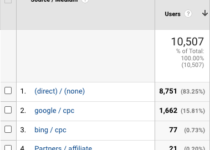The Evolution of Digital Marketing: From Traditional to Trendsetting
In the fast-paced world of marketing, there’s been a big shift from traditional to digital platforms. This change has completely transformed how businesses connect with their audiences. Nowadays, digital marketing is absolutely essential for brands that want to thrive in the digital age.
Understanding Digital Marketing
Digital marketing covers a wide range of strategies and channels that use digital technologies to reach and engage potential customers. It’s a whole different ballgame compared to old-school marketing methods like print ads or TV commercials. With digital marketing, you get amazing opportunities for precise targeting, real-time analytics, and interactive engagement.
Key Components of Digital Marketing
Search Engine Optimization (SEO): SEO is the bread and butter of digital marketing. It’s all about optimizing website content and structure to rank higher in search engine results and bring in organic traffic.
Content Marketing: High-quality, relevant content is the lifeblood of digital marketing. It’s what attracts and keeps audiences hooked, whether it’s through blogs, articles, videos, or infographics.
Social Media Marketing: Platforms like Facebook, Instagram, Twitter, and LinkedIn are game-changers for brands. They let you build communities, foster relationships, and boost your brand presence with targeted campaigns and engaging content.
Pay-Per-Click Advertising (PPC): With PPC campaigns, you can bid for ad placement in search engine results or users’ social media feeds. It’s a great way to drive immediate traffic and conversions.
Email Marketing: Personalized email campaigns are a powerful tool for nurturing leads and retaining customers. They let you have direct communication and offer tailored content based on user behavior and preferences.
The Impact of Digital Transformation
The digital landscape is constantly evolving, which means marketers have to adapt and innovate non-stop. Thanks to advancements in AI, machine learning, and data analytics, marketers can now predict consumer behavior, personalize experiences, and optimize campaigns with incredible precision.
Future Trends and Innovations
Looking ahead, there are some exciting technologies on the horizon that will shake up digital marketing even more. Think augmented reality (AR), voice search optimization, and chatbots. These innovations will offer immersive experiences and seamless customer interactions.
Conclusion
All in all, digital marketing isn’t just a tool. It’s a game-changer that empowers businesses of all sizes to reach global audiences, drive growth, and build long-lasting relationships. By embracing digital strategies and staying nimble in a competitive landscape, brands can navigate the complexities of the digital age and achieve sustainable success.


